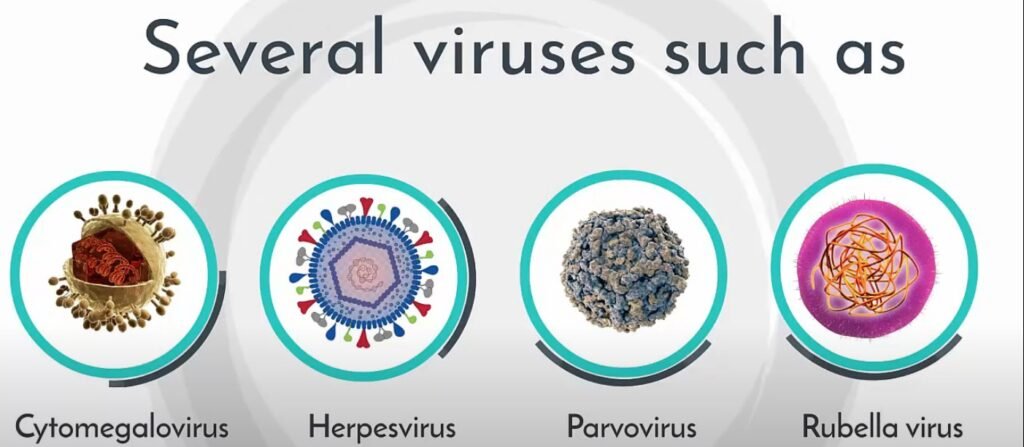Habitual abortion, also known as recurrent miscarriage, is a distressing condition that affects many women worldwide. It involves the repeated loss of pregnancies before the 20th week. In this comprehensive guide, we’ll delve into the causes, symptoms, and natural remedies for habitual abortion.
What is Habitual Abortion?
Habitual abortion refers to the recurrent loss of pregnancies before the completion of 20 weeks. It’s a challenging issue in gynecology and can lead to significant emotional distress for affected individuals. When a woman experiences two or more consecutive miscarriages, she is diagnosed with habitual abortion.
Symptoms of Habitual Abortion
The main symptoms of habitual abortion include:
- Labour-like Pains: Women may experience pains similar to labor pains as the uterus contracts to expel the fetus.
- Bleeding: Vaginal bleeding is common and may result in the expulsion of the fetus.
Causes of Habitual Abortion
Several factors contribute to habitual abortion, including:
- Congenital Uterine Malformations: Structural abnormalities in the uterus can increase the risk of recurrent miscarriages.
- Hormonal Imbalance: Inadequate secretion of progesterone, a hormone vital for pregnancy maintenance, can lead to miscarriage.
- Chronic Constipation: Constipation can cause inflammation of the reproductive organs, increasing the risk of miscarriage.
- Drug Use: Certain drugs, especially teratogenic drugs like painkillers and antibiotics, can induce uterine contractions and trigger miscarriage.
- Lifestyle Factors: Excessive physical exercise, mental stress, and unhealthy habits like smoking and alcohol consumption can contribute to recurrent miscarriages.

Natural Treatment for Habitual Abortion
- Managing habitual abortion often involves natural remedies and lifestyle modifications. Here are some effective strategies:
- Natural remedies can be used to address conditions like chronic constipation, uterine infections, and hormone imbalances. For congenital uterine malformation, however, recourse may have to be taken to surgery.
- On appearance of the first symptoms of possible abortion, the patient should be put to bed immediately and the bottom end of the bed raised. Cold compresses at 60°F temperature should be applied continuously to the inner portion of the thighs, the perinium, the vagina and the lumbar region. It is recommended to replace compressors every 15 to 20 minutes. After removing the compress to be renewed, the area needs to be gently massaged for 30 seconds or until it becomes redder, and then the compress should be applied once again. Simultaneously, a hot application should be made to the feet.A neutral or warm water enema is an effective remedy for a constipated colon which is a major cause for the toxaemic condition of the uterus. This will relieve the bowels and thus reduce any excessive pressure on the uterus and other pelvic organs. Congestion and inflammation of the uterus can be effectively relieved by taking a twice-daily, 10-minute cold hip bath. On an empty stomach, use wet girdle packs twice a day to treat infections and congestion in the uterus and other pelvic organs. Women who have had previous abortions are advised to use these methods both before becoming pregnant and throughout the first two months after becoming pregnant. Hormonal imbalances can be set right by practising yogic exercise. yogic poses such paschimottashana, dhanurasana, bhujangasana, sarvangasana, and vajrasana and trikonasna are especially useful in improving thyroid, pituitary, adrenal and gonaidal endocrine functions and should be practised regularly by women who suffer from imbalances of this sort, upto the first two months of pregnancy.
- Dietary control is of utmost importance in the prevention of habitual abortion. Pregnant women should avoid refined carbohydrates, sugars, non-vegetarian food, coffee and tea.
- Additionally, since fried and oily meals cause constipation, they should stay away from them.
- Alcohol use and tobacco use must be rigorously avoided. The pregnant woman’s diet chait should be on the following lines:
- Breakfast: Fresh fruits and a glass of milk mixed with a teaspoonful of honey.
- Lunch: Steamed vegetables, boiled rice or whole wheat chappatis and soup or buttermilk.Midafternoon: A glass of fruit juice or a whole fruit. Dinner: Until the seventh month, a cooked diet akin to the afternoon meal may be consumed. After that, fruits, nuts, germinated seeds and sprouts, milk, buttermilk and soups must form her diet because they reduce the workload on the digestive system and thus help avoid indigestion, constipation and related disorders. Amla, the colloquial name for Indian gooseberry, is thought to be helpful in preventing abortions. During the pregnancy, a teaspoon of fresh amla juice combined with honey should be consumed every morning. It will also prevent infections and help in the absorption of iron. A brew made from safflower foliage is also said to prevent abortion. Pregnant women who have previously had multiple abortions ought to take all further measures required to avoid miscarriage. They should refrain from having sex while they are carly pregnant. They should go to bed early and rise early and take regular exercise, but avoid fatigue. They should sleep on a hard mattress with their heads low, and remain calm and cool. All these measures will greatly help in correcting the phenomenon of habitual abortion.

Conclusion
Habitual abortion is a complex condition with various underlying causes. While medical intervention may be necessary in some cases, natural remedies and lifestyle modifications can play a significant role in preventing recurrent miscarriages. By understanding the causes and symptoms of habitual abortion and adopting holistic approaches to treatment, women can improve their chances of carrying a pregnancy to term. Always consult with a healthcare professional for personalized advice and guidance.

FAQs (Frequently Asked Questions)
1. Are natural remedies safe during pregnancy?
- Yes, many natural remedies are safe and effective when used appropriately during pregnancy. However, it’s essential to consult with a healthcare provider before starting any new regimen.
2. Can yoga help prevent miscarriage?
- While yoga can promote overall well-being during pregnancy, its direct impact on preventing miscarriage is not fully proven. However, yoga can help reduce stress and promote hormonal balance, which may indirectly support a healthy pregnancy.
3. Is dietary control necessary for preventing pregnancy complications?
- Yes, maintaining a balanced diet is crucial for preventing pregnancy complications. Avoiding certain foods and incorporating nutritious options can support maternal and fetal health.
4. How can I relieve constipation during pregnancy?
- Natural remedies like warm water enemas, dietary adjustments, and adequate hydration can help alleviate constipation during pregnancy. It’s essential to consult with a healthcare provider before trying any new treatment.
5. Are there any specific precautions for pregnant women with a history of repeated abortions?
- Pregnant women with a history of repeated abortions should take extra precautions, including avoiding sexual intercourse, maintaining a healthy lifestyle, and seeking regular prenatal care to reduce the risk of miscarriage.
